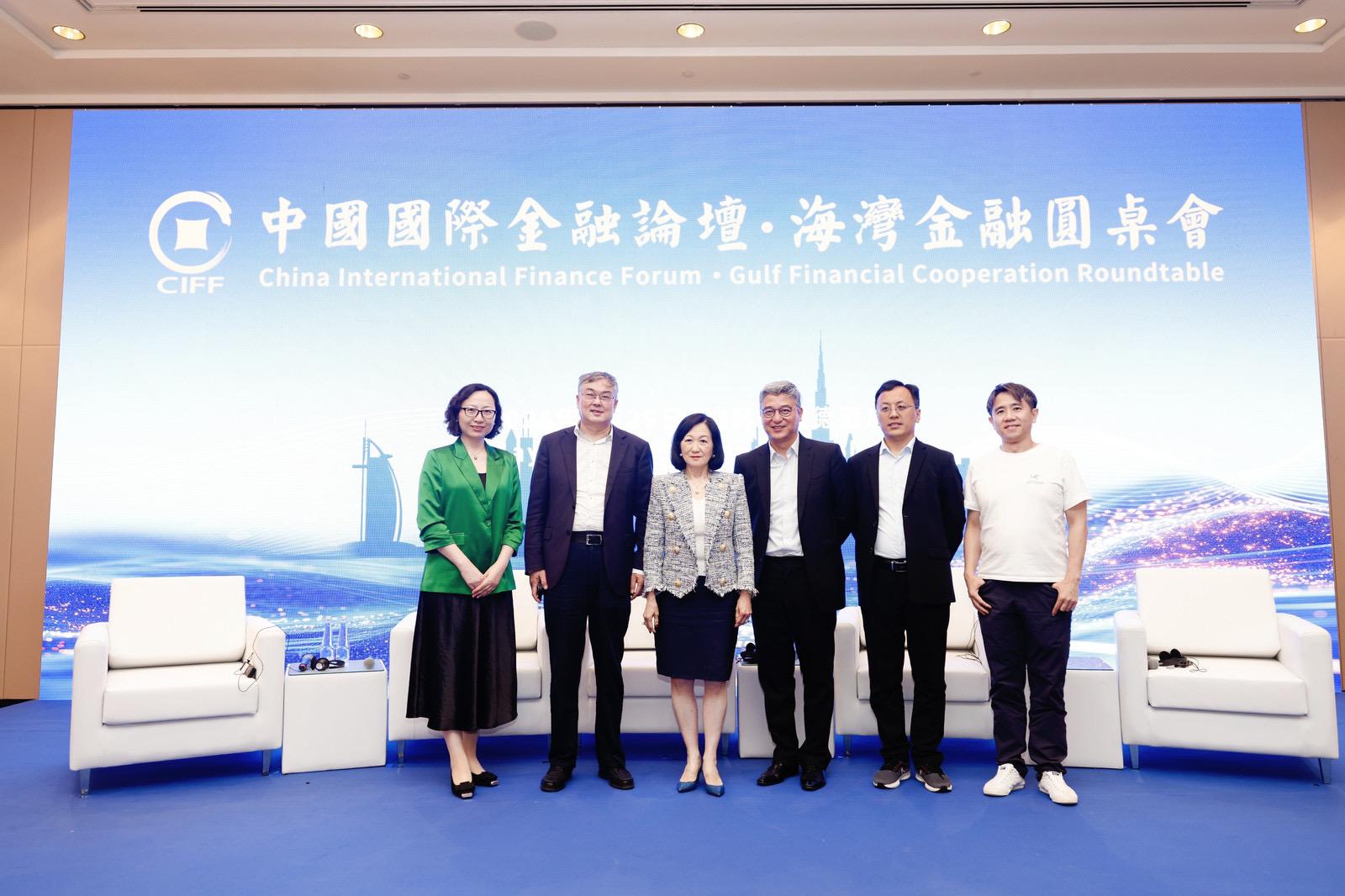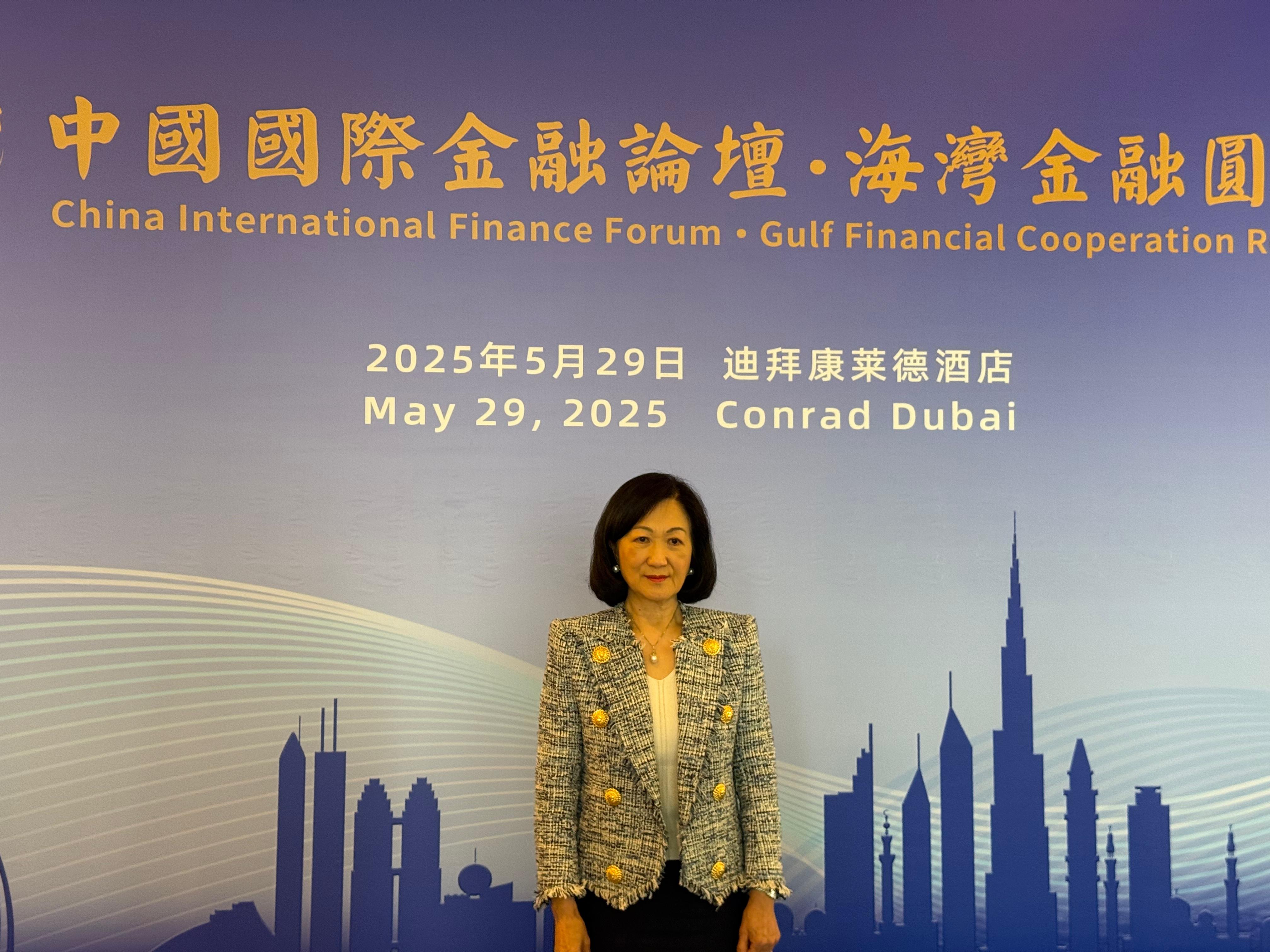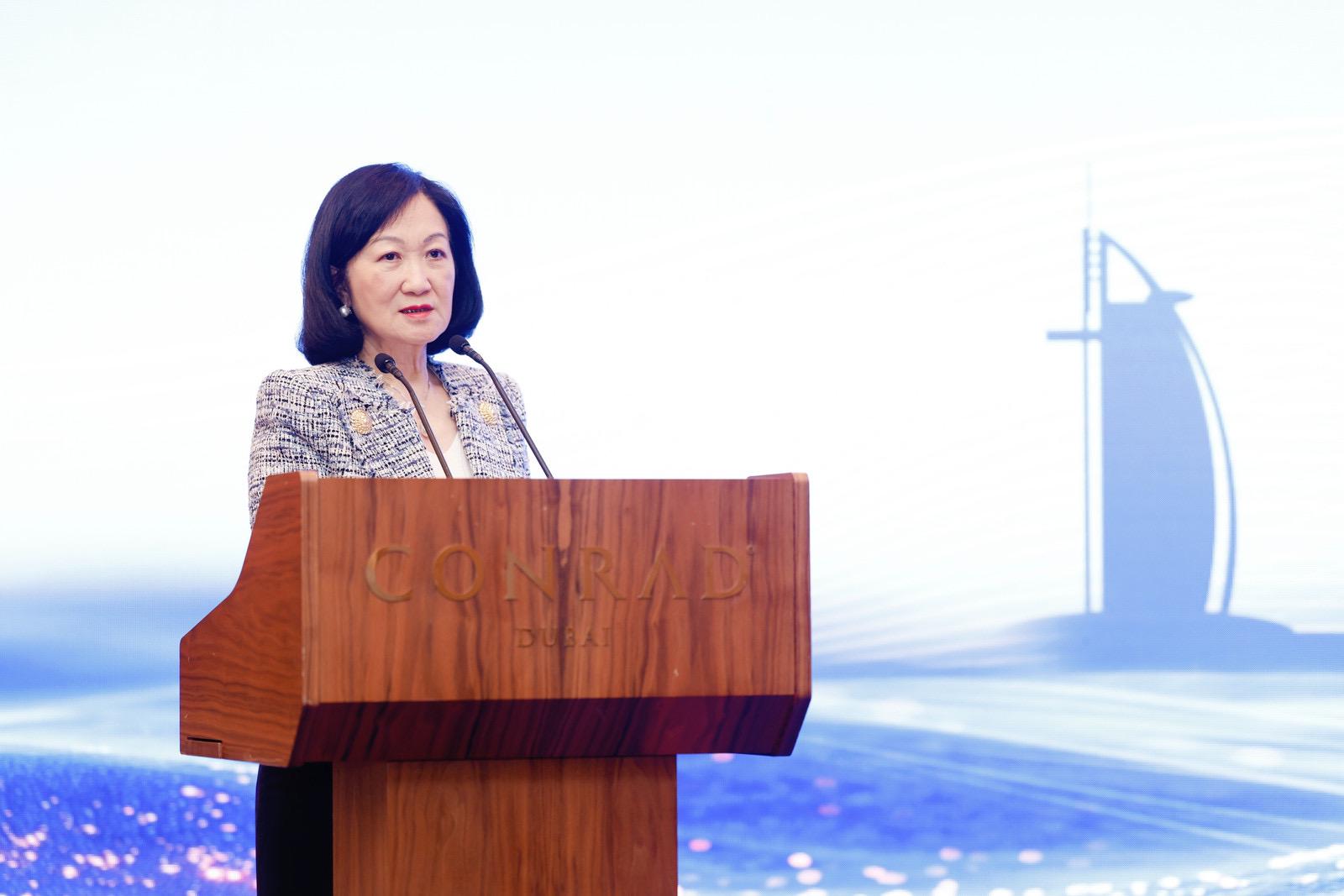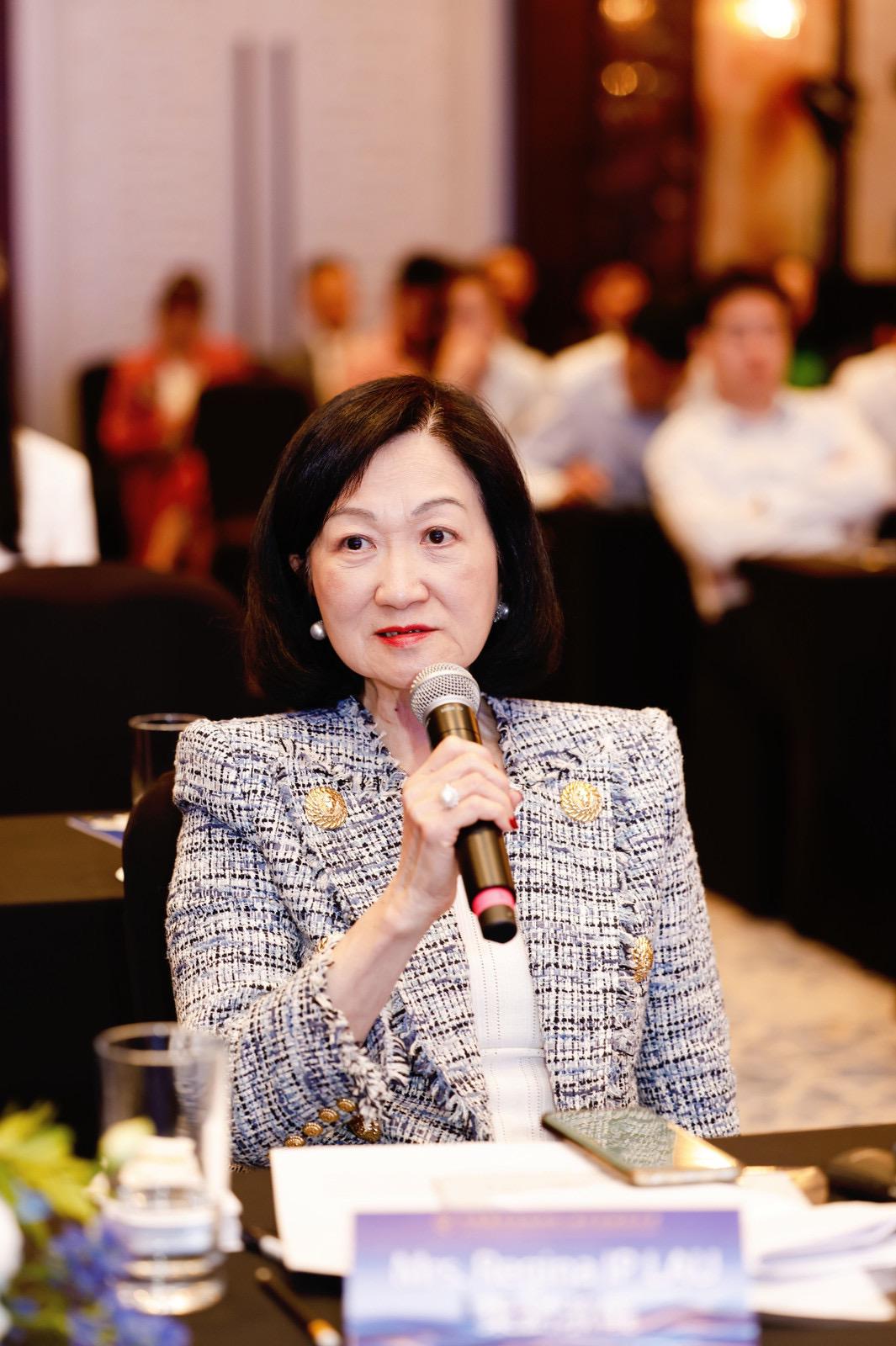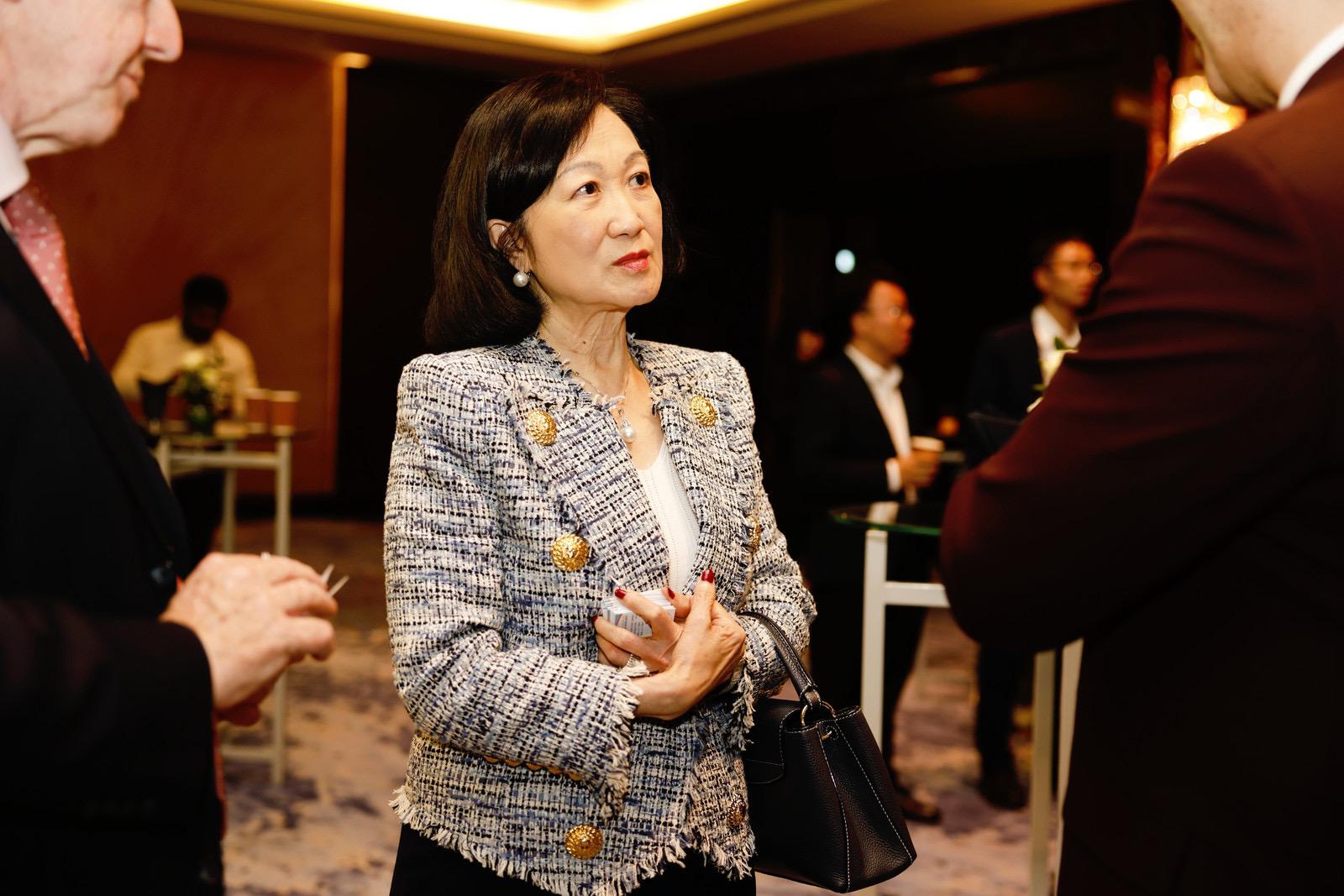葉劉淑儀女士出席中國國際金融論壇 · 海灣金融合作圓桌會(二)
2025 年 05 月 29 日
5月29日,匯賢智庫理事會主席葉劉淑儀女士受邀出席位於杜拜舉辦的中國國際金融論壇 · 海灣金融合作圓桌會。會後,葉劉淑儀女士圍繞圓桌會議的內容為主題撰寫網誌進行分享。
網誌內容如下:
Last week, I was honoured to have been invited by the China International Financial Forum (CIFF) to take part in the Gulf Financial Cooperation Roundtable. The CIFF was established in 2004. Last November, it held its 21st global annual meeting in Hong Kong. Savantas Policy Institute was one of the co-organisers. I am delighted that CIFF invited Savantas Policy Institute again to be one of the co-organisers of the Gulf Financial Cooperation Roundtable held in Dubai on 29 May.
I was lucky to arrive in Dubai after the UAE Government granted HKSAR passport holders visa-free travel to the country, after Chief Executive John Lee’s recent successful Middle East visit.
While in Dubai, I was privileged to have the opportunity to call on Madam Ou Boqian, our Consul-General in Dubai. She gave us a very useful briefing on developments in the UAE. I learned that Dubai is a free port like Hong Kong, and the common law is practised in the Dubai International Financial Centre (DIFC). Dubai is diversifying from its reliance on oil and gas into trade and financial services.
The theme of the Roundtable was “Building an Oasis of Certainty in an Uncertain World”. The topic could not be more timely, given the global uncertainty in trade and investment. The event agenda consisted of three sessions - “Web 3.0 Ecosystem in NEXT”; “Cross-border Investment Security”; and “Opportunities for Financial Cooperation in the UAE and the Gulf Region”.
I was one of the opening speakers. In my opening remarks, I pointed out that Hong Kong and Dubai have much in common. Both cities are free ports and function as trading, shipping, aviation and financial hubs. Hong Kong is a well-established global financial centre. Hong Kong has done well in providing traditional financial services such as banking, insurance, bonds, and equity. More recently, we have diversified into green finance and digital finance, and we are also building Hong Kong into a family office hub. We now have 2,700 family offices, surpassing the numbers in Singapore. Our family office business has grown briskly thanks to our simple, low taxation system and preferential tax arrangements for family offices.
I pointed out that our stock market had bounced back strongly. The Hang Seng Index has gone up 16 percent and daily average trading volume reached US$ 32 billion so far this year. The Hong Kong Stock Exchange has hosted 71 new listings, and raised nine billion US dollars, seven times the amount it raised last year. With 100 IPO applications in the pipeline, Hong Kong is on course to becoming one of the world’s largest fund-raising platforms.
Compared to other financial hubs, we made a slower start in digital finance. In October 2022, our government published a policy statement on the development of digital assets in Hong Kong. Our policy is “Same Activity, Same Risk, Same Regulation”. To guard against systemic risks, financial fraud, money-laundering and other illicit activities that could be done through digital assets, our government started by amending our Anti-Money Laundering and Counter-Terrorist Financing Ordinance to introduce a licensing scheme for providers of services in trading, investing and managing virtual assets. The government is currently undertaking a review of the existing regulatory framework to build a comprehensive ecosystem for digital finance.
Hong Kong now has eight digital banks licensed by our Monetary Authority, and 10 digital asset trading platforms licensed by our Securities and Futures Commission, but only two of them are active.
A few days ago, on 21 May, we reached a new milestone in enacting a Stablecoins Ordinance, which provides for the licensing of real word asset-backed stablecoins in Hong Kong, and HK Dollar-referenced stablecoins in any part of the world. Our government is consulting the financial community on related issues such as over-the-counter trading and digital asset custodian services, and hopes to be able to put the new licensing regime into effect by end of this year.
I believe Web3-enabled new financial assets have a long way to go and have the potential of revolutionising the financial industry. Cryptos, meme coins and stablecoins can be issued much faster and much more cheaply than publicly listed stocks. Its decentralised nature is democratising, and enables new digital financial hubs to emerge. From the use of Bitcoin, the first crypto, as a currency in 2009, the global trading volume of stablecoins reached US$ 27.6 trillion in 2024, according to a report by cryptocurrency exchange operator CEX.io. The trading volume of stablecoins surpassed the combined volume of Visa and Mastercard transactions.
Hong Kong is likewise benefiting from the tremendous productivity gains brought about by stablecoins. In 2024, Hong Kong’s trade volume amounted to US$ 1.2 trillion, 35 percent of which was routed through SWIFT, requiring three days for completion and cost of 1.5 percent. A sandbox experiment conducted by Standard Chartered and Hong Kong Telecom using stablecoins sped up the time required to T+0 and reduced cost to 0.3 percent.
During the discussion in Session 1, a panellist pointed out that one of the hurdles to further development of digital finance is the different regulatory regimes practised by different jurisdictions. I raised the question whether it would be possible to have harmonised rules for prudential supervision, investor protection and anti-fraud safeguards in accordance with the principles laid down by the Financial Stability Board. In other words, for the regulatory regimes for digital assets to be integrated with that for traditional finance. A panellist agreed that would certainly be one way to move ahead.
New digital financial hubs like Dubai are bolder and more venturesome than a well-established financial market like Hong Kong. There is plenty of room for the three financial centres, Shanghai, Dubai and Hong Kong to work together and complement each other. I look forward to more financial cooperation with Shanghai and Dubai in the near future.
- 完 -
活動相片:
